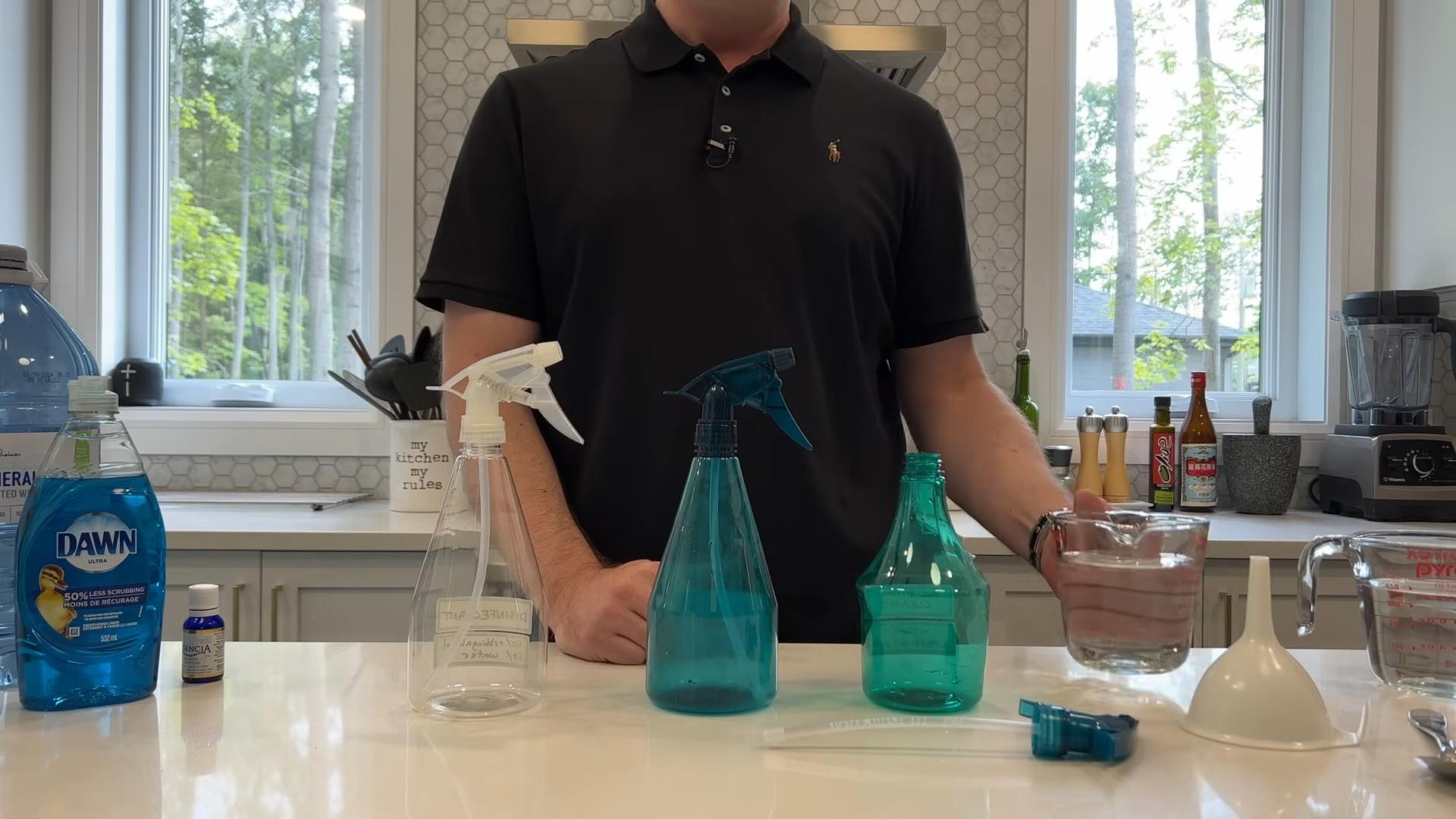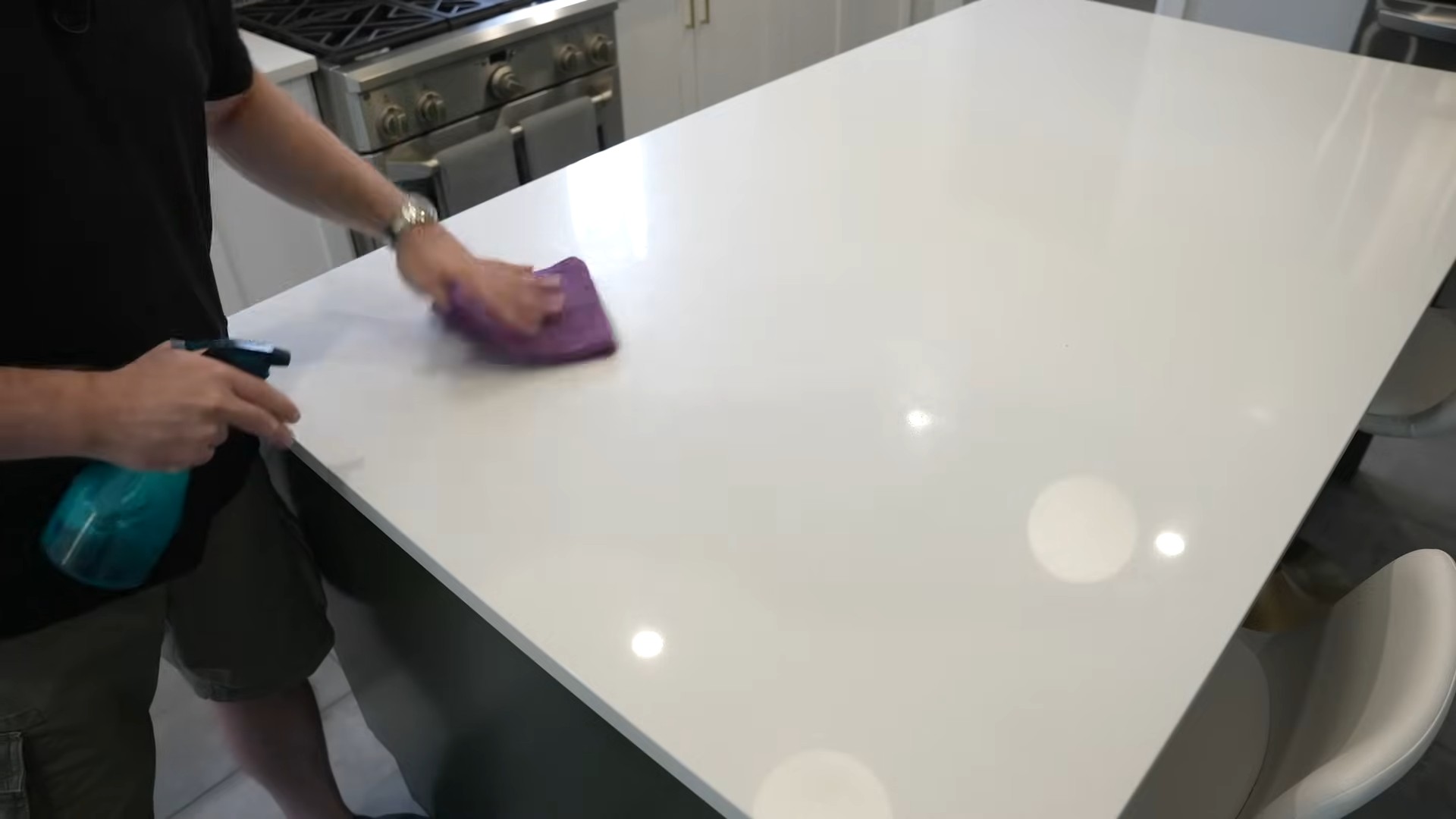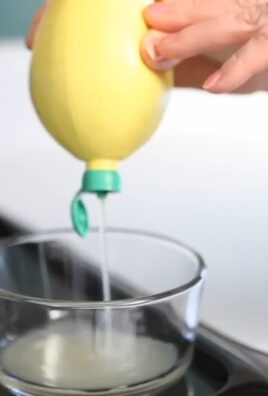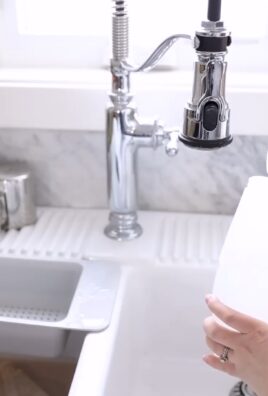DIY Homemade Cleaners: Unlock the secrets to a sparkling home without breaking the bank or harming the environment! Are you tired of harsh chemicals and sky-high prices for your cleaning supplies? I know I was! That’s why I dove headfirst into the world of DIY cleaning, and let me tell you, it’s been a game-changer.
For generations, resourceful individuals have relied on simple, natural ingredients to keep their homes clean and fresh. Think back to your grandmother’s era – vinegar, baking soda, and lemon were staples, not just in the kitchen, but for tackling grime and dirt throughout the house. This tradition stems from a time when access to commercial cleaners was limited, and resourcefulness was a necessity. But even today, with shelves overflowing with options, the appeal of DIY Homemade Cleaners remains strong.
Why? Because these homemade solutions are not only incredibly effective, but they’re also safer for your family, pets, and the planet. Plus, they’re often significantly cheaper! Imagine the satisfaction of knowing exactly what’s going into your cleaning products, avoiding harmful toxins, and saving money all at the same time. This article will guide you through some of the easiest and most effective DIY cleaning recipes, empowering you to create a healthier and more sustainable home, one sparkling surface at a time. Get ready to ditch the chemicals and embrace the power of natural cleaning!

“`html
DIY Homemade Cleaners: Natural Solutions for a Sparkling Home
Let’s face it, cleaning products can be expensive and often filled with harsh chemicals. But what if I told you that you could create effective, eco-friendly cleaners right in your own kitchen? I’m going to share some of my favorite DIY homemade cleaner recipes that are not only budget-friendly but also better for your health and the environment. Get ready to ditch those store-bought bottles and embrace the power of natural cleaning!
All-Purpose Cleaner: The Workhorse of Your Cleaning Arsenal
This all-purpose cleaner is my go-to for tackling everyday messes on countertops, sinks, and other surfaces. It’s simple to make and incredibly versatile.
Ingredients You’ll Need:
* 1 cup white vinegar
* 1 cup water
* 10-20 drops of your favorite essential oil (lemon, lavender, tea tree, and eucalyptus are great choices)
* Spray bottle
Step-by-Step Instructions:
1. Combine the Ingredients: In a clean spray bottle, pour in the white vinegar and water.
2. Add Essential Oils: Add your chosen essential oils. These not only provide a pleasant scent but also offer additional cleaning and disinfecting properties. Lemon is known for its degreasing power, tea tree is a natural antiseptic, and lavender adds a calming fragrance.
3. Shake Well: Secure the spray bottle lid and shake well to combine all the ingredients.
4. Time to Clean!: Spray the cleaner onto the surface you want to clean and wipe with a clean cloth or sponge. For tougher stains, let the cleaner sit for a few minutes before wiping.
Important Note: Avoid using this cleaner on natural stone surfaces like granite or marble, as the vinegar can etch the stone.
Glass Cleaner: Streak-Free Shine Every Time
Say goodbye to streaks and smudges with this simple yet effective glass cleaner. It’s perfect for windows, mirrors, and glass shower doors.
Ingredients You’ll Need:
* 1/4 cup white vinegar
* 2 cups water
* Spray bottle
* Microfiber cloth
Step-by-Step Instructions:
1. Mix the Solution: In a clean spray bottle, combine the white vinegar and water.
2. Shake it Up: Secure the lid and shake gently to mix.
3. Spray and Wipe: Spray the solution onto the glass surface.
4. Wipe Clean: Use a clean microfiber cloth to wipe the glass dry. Microfiber cloths are essential for achieving a streak-free finish.
Pro Tip: For extra stubborn streaks, try using crumpled newspaper to wipe the glass after spraying. It works wonders!
Toilet Bowl Cleaner: Naturally Fresh and Clean
Keep your toilet bowl sparkling clean and fresh with this natural alternative to harsh chemical cleaners.
Ingredients You’ll Need:
* 1/2 cup baking soda
* 1 cup white vinegar
* 10-15 drops of tea tree essential oil (optional, for added disinfecting power)
Step-by-Step Instructions:
1. Sprinkle Baking Soda: Sprinkle the baking soda evenly around the inside of the toilet bowl.
2. Pour in Vinegar: Slowly pour the white vinegar over the baking soda. You’ll notice a fizzing reaction, which helps to loosen stains and grime.
3. Add Essential Oil (Optional): If desired, add the tea tree essential oil for its disinfecting properties.
4. Let it Sit: Allow the mixture to sit for at least 30 minutes, or even overnight for tougher stains.
5. Scrub and Flush: Use a toilet brush to scrub the bowl thoroughly, then flush.
For a deeper clean: Pour 1/2 cup of borax into the toilet bowl before adding the vinegar and baking soda. Borax is a natural mineral that helps to remove stains and deodorize.
Oven Cleaner: Tackling Baked-On Grease and Grime
Cleaning the oven is often a dreaded task, but this DIY oven cleaner makes it much easier and avoids the harsh fumes of commercial oven cleaners.
Ingredients You’ll Need:
* 1/2 cup baking soda
* Water
* Spray bottle
* Scrubbing sponge or brush
* Vinegar (optional, for stubborn spots)
Step-by-Step Instructions:
1. Prepare the Paste: In a bowl, mix the baking soda with enough water to form a thick paste.
2. Coat the Oven: Spread the baking soda paste evenly over all interior surfaces of the oven, avoiding the heating elements.
3. Let it Sit: Allow the paste to sit for at least 12 hours, or preferably overnight. This gives the baking soda time to loosen the baked-on grease and grime.
4. Scrub and Wipe: After the paste has sat, use a scrubbing sponge or brush to scrub away the loosened grime.
5. Rinse Thoroughly: Wipe the oven clean with a damp cloth, rinsing frequently. You may need to repeat this step several times to remove all traces of the baking soda paste.
6. Vinegar for Stubborn Spots (Optional): For any stubborn spots that remain, spray them with vinegar and let it sit for a few minutes before scrubbing again.
Safety First: Always wear gloves when cleaning your oven, and make sure the oven is completely cool before starting.
Drain Cleaner: Unclogging Drains Naturally
Avoid harsh chemical drain cleaners with this simple and effective DIY solution.
Ingredients You’ll Need:
* 1/2 cup baking soda
* 1 cup white vinegar
* Boiling water
Step-by-Step Instructions:
1. Pour in Baking Soda: Pour the baking soda down the drain.
2. Add Vinegar: Follow with the white vinegar. You’ll hear a fizzing sound as the baking soda and vinegar react.
3. Let it Fizz: Let the mixture fizz for about 30 minutes. This helps to loosen any clogs in the drain.
4. Flush with Boiling Water: After 30 minutes, carefully pour a pot of boiling water down the drain. The hot water will help to flush away the loosened debris.
Repeat if Necessary: If the drain is still clogged, repeat the process. For particularly stubborn clogs, you may need to use a plunger after flushing with boiling water.
Furniture Polish: Reviving Wood Furniture
Give your wood furniture a new lease on life with this natural furniture polish.
Ingredients You’ll Need:
* 1/4 cup olive oil
* 1 tablespoon white vinegar or lemon juice
* Soft cloth
Step-by-Step Instructions:
1. Mix the Polish: In a small bowl, combine the olive oil and white vinegar or lemon juice.
2. Apply Sparingly: Dip a soft cloth into the mixture and apply a small amount to the wood furniture.
3. Buff to a Shine: Use a clean, dry cloth to buff the furniture to a shine.
Test First: Before applying the polish to the entire piece of furniture, test it on an inconspicuous area to ensure it doesn’t damage the finish.
Dish Soap: Gentle and Effective Cleaning Power
This homemade dish soap is gentle on your hands and effective at cleaning dishes.
Ingredients You’ll Need:
* 1 cup grated castile soap (like Dr. Bronner’s)
* 4 cups hot water
* 1 tablespoon washing soda (sodium carbonate)
* 10-15 drops essential oil (lemon, grapefruit, or orange are great choices)
Step-by-Step Instructions:
1. Dissolve the Soap: In a large saucepan, combine the grated castile soap and hot water. Heat over medium heat, stirring constantly, until the soap is completely dissolved.
2. Add Washing Soda: Remove the saucepan from the heat and stir in the washing soda until it is dissolved.
3. Add Essential Oils: Add your chosen essential oils for fragrance and extra cleaning power.
4. Let it Cool: Allow the mixture to cool completely. It will thicken as it cools.
5. Pour into a Dispenser: Pour the dish soap into a soap dispenser.
Note: This dish soap may not lather as much as commercial dish soaps, but it is still effective at cleaning dishes.
Laundry Detergent: Clean Clothes, Naturally
Make your own laundry detergent and save money while reducing your exposure to harsh chemicals.
Ingredients You’ll Need:
* 1 cup washing soda (sodium carbonate)
* 1 cup borax
* 1 bar of castile soap, grated
Step-by-Step Instructions:
1. Grate the Soap: Grate the castile soap using a cheese grater or food processor.
2. Combine Ingredients: In a large bowl, combine the washing

Conclusion
So, there you have it! Ditching the harsh chemicals and embracing the power of DIY homemade cleaners is not just a trend; it’s a conscious choice for a healthier home, a happier planet, and a lighter wallet. We’ve explored how simple ingredients, often already lurking in your pantry, can be transformed into effective cleaning solutions that rival, and often surpass, their store-bought counterparts.
Why is this a must-try? Because you’re taking control. You know exactly what’s going into your cleaners, eliminating the mystery ingredients and potential irritants that can trigger allergies or sensitivities. You’re reducing your plastic consumption, contributing to a more sustainable lifestyle. And, let’s be honest, there’s a certain satisfaction in creating something yourself, knowing you’re making a positive impact with every spray and wipe.
But the beauty of DIY lies in its adaptability. Feel free to experiment with different essential oils to customize the scents of your cleaners. Lavender for a calming bathroom spray, lemon for a zesty kitchen cleaner, or tea tree for its antibacterial properties – the possibilities are endless! You can also adjust the ratios of ingredients to suit your specific cleaning needs. For tougher stains, a slightly stronger concentration of vinegar or baking soda might be required. Remember to always test your cleaners on an inconspicuous area first, especially on delicate surfaces.
Consider these variations to further enhance your DIY cleaning arsenal:
* Infused Vinegar: Steep citrus peels (lemon, orange, grapefruit) in vinegar for a few weeks to create a powerfully scented and effective all-purpose cleaner. The citrus oils add extra cleaning power and a refreshing fragrance.
* DIY Disinfectant Wipes: Soak reusable cloths in a mixture of water, vinegar, and a few drops of tea tree oil for a sustainable and effective alternative to disposable wipes. Store them in an airtight container for easy access.
* Homemade Laundry Detergent Booster: Add a cup of washing soda to your regular laundry detergent for extra cleaning power, especially for heavily soiled clothes.
We truly believe that once you experience the effectiveness and simplicity of these DIY homemade cleaners, you’ll never look back. The peace of mind knowing you’re cleaning your home with safe, natural ingredients is invaluable.
Now, it’s your turn! We encourage you to try these recipes and discover the joy of DIY cleaning. Don’t be afraid to experiment and find what works best for you and your home. And most importantly, share your experiences! Let us know in the comments below which recipes you tried, what variations you discovered, and any tips you have for fellow DIY enthusiasts. Together, we can create a community of conscious cleaners, making our homes healthier and our planet greener, one homemade cleaner at a time. Embrace the power of natural cleaning and transform your home into a haven of freshness and well-being.
Frequently Asked Questions (FAQ)
Are DIY homemade cleaners as effective as store-bought cleaners?
Yes, in many cases, they can be just as effective, and sometimes even more so! The effectiveness depends on the specific cleaner and the task at hand. For example, vinegar is a powerful disinfectant and degreaser, while baking soda is an excellent abrasive cleaner and deodorizer. Many store-bought cleaners rely on harsh chemicals that can be harmful to your health and the environment. DIY cleaners use natural ingredients that are often just as effective without the negative side effects. However, it’s important to note that some DIY cleaners may not be suitable for all surfaces, so always test in an inconspicuous area first. For heavily soiled or specialized cleaning tasks, you might need to adjust the concentration of ingredients or consider a store-bought alternative.
What are the best essential oils to use in DIY homemade cleaners?
The best essential oils to use depend on your personal preferences and the desired cleaning effect. Some popular choices include:
* Lemon: Known for its degreasing and disinfecting properties, as well as its uplifting scent.
* Tea Tree: A powerful antibacterial and antifungal oil, ideal for disinfecting surfaces.
* Lavender: Offers a calming and relaxing scent, perfect for bathroom and bedroom cleaners.
* Eucalyptus: Has antiseptic and antiviral properties, and a refreshing scent that can help clear congestion.
* Peppermint: A natural insect repellent and has a refreshing, invigorating scent.
* Orange: Similar to lemon, it’s a great degreaser and has a cheerful, uplifting aroma.
When using essential oils, always use them in moderation (a few drops are usually sufficient) and ensure they are properly diluted. Some essential oils may not be safe for use around pets or pregnant women, so do your research before using them.
How should I store my DIY homemade cleaners?
Store your DIY cleaners in clean, airtight containers. Glass spray bottles are a great option for spray cleaners, while plastic bottles can be used for other solutions. Label each container clearly with the name of the cleaner and the date it was made. Store them in a cool, dark place away from direct sunlight and heat, as these can degrade the ingredients over time. Most DIY cleaners have a shelf life of several months, but it’s best to use them within a few weeks for optimal effectiveness. If you notice any changes in color, odor, or consistency, discard the cleaner.
Are DIY homemade cleaners safe for all surfaces?
Not all DIY cleaners are safe for all surfaces. For example, vinegar can be too acidic for some natural stone surfaces like marble and granite, as it can etch the surface. Baking soda can be abrasive and may scratch delicate surfaces. Always test your DIY cleaner on an inconspicuous area first to ensure it doesn’t damage the surface. For delicate surfaces, use a milder cleaner or dilute the solution with water. Research the specific cleaning needs of each surface in your home before using a DIY cleaner.
Can I use DIY homemade cleaners if I have allergies or sensitivities?
DIY homemade cleaners can be a great option for people with allergies or sensitivities, as you have complete control over the ingredients. However, it’s still important to be cautious and test the cleaner on a small area of skin before using it extensively. If you are allergic to any of the ingredients, such as vinegar or essential oils, avoid using them. You can also consult with your doctor or allergist to determine which ingredients are safe for you to use.
How can I make my DIY homemade cleaners more effective?
To make your DIY cleaners more effective, consider these tips:
* Use high-quality ingredients: Opt for pure essential oils and high-quality vinegar and baking soda.
* Adjust the concentration: For tougher stains or dirt, increase the concentration of the active ingredients, such as vinegar or baking soda.
* Pre-treat stains: For stubborn stains, pre-treat the area with a paste of baking soda and water or a solution of vinegar and water before cleaning.
* Use hot water: Hot water can help dissolve dirt and grime more effectively.
* Allow the cleaner to sit: Let the cleaner sit on the surface for a few minutes before wiping it away to allow it to penetrate and loosen dirt.
* Scrub thoroughly: Use a scrub brush or sponge to scrub the surface thoroughly, especially for tough stains or grime.
What are some common mistakes to avoid when making DIY homemade cleaners?
Some common mistakes to avoid include:
* Mixing vinegar and bleach: This combination creates toxic chlorine gas, which can be harmful to your health.
* Using too much essential oil: Essential oils are potent and can be irritating to the skin and respiratory system if used in excessive amounts.
* Not labeling containers: Always label your containers clearly to avoid confusion and accidental misuse.
* Using the wrong cleaner for the surface: As mentioned earlier, some cleaners are not suitable for all surfaces.
* Not testing the cleaner first: Always test the cleaner on an inconspicuous area before using it extensively.
By avoiding these mistakes, you can ensure that your DIY homemade cleaners are safe and effective.




Leave a Comment